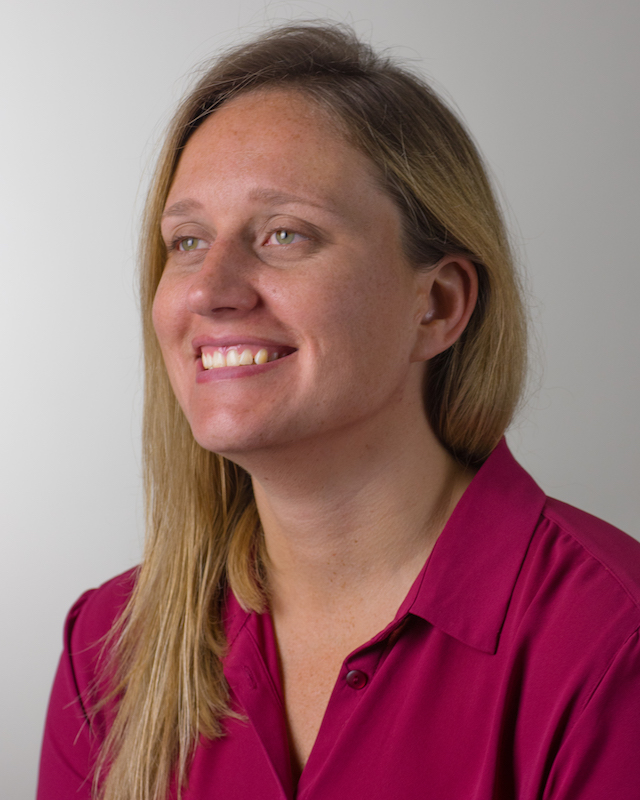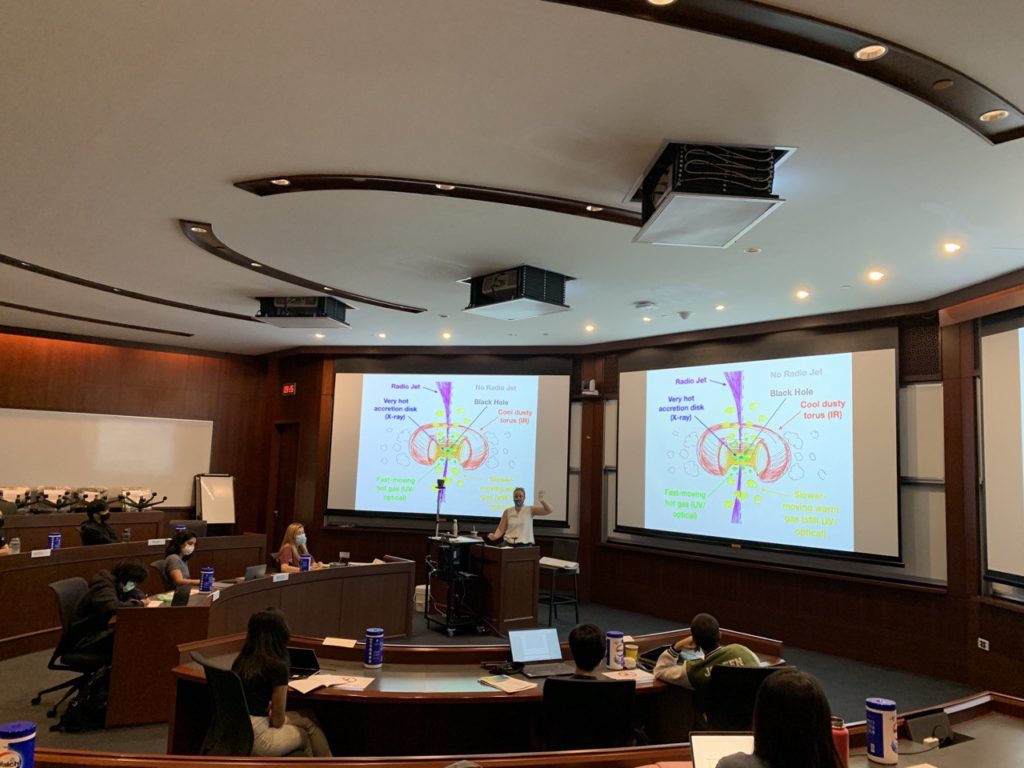Yale-NUS professor uses innovative pedagogies to teach the science behind black holes
While ‘black hole’ may be a familiar term to many due to its frequent appearance in popular media, fewer people have a good scientific understanding of this concept in astronomy. To give interested students a better sense of what black holes are from a scientific perspective, Yale-NUS College Assistant Professor of Science (Physics) Chelsea Sharon taught an elective – Introduction to Black Holes – in the past semester.
 Assistant Professor Sharon is an observational radio astronomer who studies the processes that affect star formation and galaxy evolution across cosmic time. Image provided by Asst Prof Chelsea Sharon.
Assistant Professor Sharon is an observational radio astronomer who studies the processes that affect star formation and galaxy evolution across cosmic time. Image provided by Asst Prof Chelsea Sharon.
Being an introductory course, the elective is mainly aimed at non-science majors or prospective science majors in their first year of college. Students get to work on a myriad of creative and carefully designed assignments to enhance their learning, including having the opportunity to work with Nobel Prize-winning data in the class. “For instance, students taking the course this year get to work with data from Nobel Laureate Andrea Ghez on the supermassive black hole at the centre of our galaxy,” said Asst Prof Sharon.
 Asst Prof Sharon showing students an active galactic nucleus (AGN) model she drew. Image provided by Zhu Wentao.
Asst Prof Sharon showing students an active galactic nucleus (AGN) model she drew. Image provided by Zhu Wentao.
Another highlight of the course is its final project which lets students demonstrate their mastery of the course topic in the way they find most engaging. Asst Prof Sharon said, “I encourage them to think outside of the box and incorporate their passions.”
Students appreciated this assessment format and turned in many creative and ingenious projects. “Some students made paintings, choreographed dances, wrote songs, short stories, poetry, and comic books, and designed album art. Some of the more hilarious projects include fictitious travel brochures to nearby black holes, a fictitious dating profile for a black hole, a fictitious black hole weather report, and a fictitious ruling on a historic scientific bet,” Asst Prof Sharon shared.
Despite the creative format of the task, there is a clear rubric on what the students’ assignments are judged on. “Students have to turn in a self-assessment to help me identify some of the assessment points in the more creative assignments, in order to keep the marking fair… But it’s always a joy to see what students produce when given more liberty in terms of style!” she said.
Lee Jin Shaun (Class of 2024) echoed similar sentiments as he reflected on the experience of working on the final project. “For our final project, we were tasked with expressing the characteristics of a black hole in any creative way we wanted. It gave us the freedom to do almost anything we wanted while applying what we had learnt throughout the course – writing, drawing, designing, programming, and more. It was a fun way to wrap up the course as we could use our skills and knowledge from our different majors and interests to consolidate our learning over the semester,” he shared.
To make the course accessible to students with varying levels of prior scientific knowledge, Asst Prof Sharon made deliberate adjustments to the structure of the course. “For the more advanced concepts, there is more focus on reasoning rather than abstract mathematics. When it comes to dealing with technical data, I also try to remove as many extraneous details as possible,” she shared.
On how to retain students’ interest in astronomy while making the course scientifically rigorous, especially when some students might not be so comfortable with the mathematical methods used in the subject, Asst Prof Sharon shared, “The objects we deal with in astronomy, while being super exotic, are also fairly concrete. For instance, most people have a rough idea of what a ‘star’ is, despite not knowing all the details. This means that people already have some level of intrinsic interest. I try to emphasise that mathematics is the language of science. So just like learning a foreign language, you need to learn the grammar and vocabulary of math, but anyone can become fluent with practice! Ultimately though, math is just a tool – the fun stuff is what we do with it,” she said.





